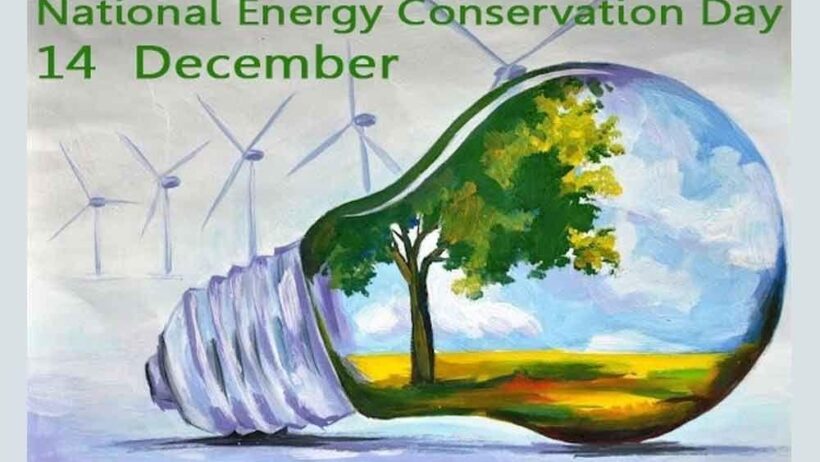Energy Conservation Day, celebrated annually on December 14, stands as a poignant reminder of our inexorable duty to cherish and safeguard the planet’s resources. Much like a vigilant shepherd tending to a flock, we are called upon to manage the natural bounty that sustains life. This day encourages not just awareness but a collective action towards implementing energy-saving practices in our daily routines, thereby forging a path toward a more sustainable future.
The essence of Energy Conservation Day lies in its purpose: to educate and inspire individuals, communities, and nations to reduce energy consumption. The day serves as a clarion call against the backdrop of incessant energy demands coupled with environmental degradation. It invites us to ponder the question: what are we willing to do to ensure a livable planet for future generations?
Across the globe, the repercussions of excess energy consumption are manifesting in formidable ways. Rising global temperatures, extreme weather patterns, and a crescendo of natural disasters are all symptoms of a planet in distress, pushed to its limits by the relentless pursuit of growth. Energy Conservation Day emerges not merely as a day marked on calendars but as a pivotal movement advocating for conscious decision-making regarding energy usage.
One of the fundamental aspects of energy conservation is to understand the nuanced interplay between energy consumption and environmental impact. The metaphor of an intricate dance embodies this relationship. Each step we take in our daily lives—be it switching off unused lights or opting for public transport—contributes to a larger choreography aimed at sustainability. Every twirl and dip can reduce our carbon footprint, leading to a harmonious existence between humanity and the environment.
The significance of this day transcends personal practice; it embodies collective responsibility. When community members unite under the banner of energy conservation, the impact is magnified exponentially. Whether it is a local workshop encouraging residents to adopt energy-efficient appliances or a citywide initiative promoting renewable energy sources, each effort resonates throughout the community. It becomes a symphony of cooperation where each voice matters. Therein lies the unique appeal of Energy Conservation Day: it transforms individual actions into a communal repertoire.
Moreover, the day challenges us to rethink our conceptualization of energy. In today’s fast-paced world, energy is often viewed through the lens of consumption and convenience. However, it is crucial to recognize that energy is a finite resource, akin to a well that may run dry if not managed judiciously. As stewards of the planet, we must advocate for a paradigm shift toward sustainability and mindfulness about our energy choices. This shift can encompass everything from adopting solar panels to minimizing wastage at every level of society.
The environmental advantages of energy conservation are manifold. From mitigating climate change to reducing pollution, the benefits extend beyond the immediate savings on energy bills. An intriguing analogy can be made with a ripe fruit hanging from a tree. If we pluck the fruit at its peak, it can be savored and enjoyed. However, if we neglect the tree and allow all the fruit to fall before it is harvested, we are left with nothing but loss. Our planet’s resources are similar. By exercising care and implementing energy conservation measures, we can reap the rewards of a healthier planet.
On an educational front, Energy Conservation Day serves as a catalyst for raising public awareness regarding the importance of sustainable energy practices. Schools, organizations, and government bodies engage in activities that underscore the need for conservation initiatives. Activities may include workshops, contests that promote energy-saving methods, and even challenges that inspire the community to reduce energy consumption during the month of December. These efforts foster a culture of sustainability and encourage innovative thinking regarding energy use.
Furthermore, this day fuels discussions surrounding energy policies and climate action at larger scales. It emphasizes the crucial role that governments and corporations must play in pushing for progressive legislation, incentivizing renewable energy, and investing in energy-efficient infrastructures. It is a lighthouse guiding policymakers toward the shores of sustainable development, ensuring that energy conservation is at the forefront of environmental policies.
On a personal level, there are myriad ways individuals can contribute to the ethos of Energy Conservation Day. Simple yet effective actions can have a profound cumulative effect. Switching to LED lighting, embracing smart thermostats, advocating for responsible consumption, and educating others about the importance of energy efficiency can inspire others to take up the mantle of environmental stewardship. The ripples of these actions can create waves of change that extends far beyond personal habits.
Ultimately, Energy Conservation Day is more than a singular celebration; it is a movement demanding a collective awakening to the realities of our energy habits. It calls upon us to perceive energy as a treasured resource rather than an inexhaustible supply. The day beckons us to forge connections with our communities, to engage in meaningful dialogues, and to promote practices that resonate with the ethos of conservation.
In conclusion, Energy Conservation Day stands as a testament to our commitment to preserving the planet for generations to come. It implores us to embrace a future characterized by sustainability, innovation, and responsibility. By acknowledging the importance of energy conservation and acting accordingly, we can ensure that the world remains a vibrant haven, flourishing with life and vitality. Just as a diligent gardener tends to a garden, cultivating its resources, so too must we nurture the Earth with intention and care.








